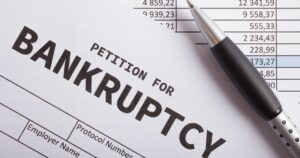What are the criteria for filing for Chapter 7 bankruptcy?
Before October 2005, a bankruptcy court judge would decide who qualified for Chapter 7. This gave judges an exceptional amount of discretion, and often consumers who should not have filed for Chapter 7 were able to do so – instead of using Chapter 13 bankruptcy.
Since then, new laws have been made creating rules that specify who can file for Chapter 7 bankruptcy and who cannot.
Chapter 7 bankruptcy permanently discharges your debts. That means once released, you do not pay your creditors a single penny on the obligations discharged. To ensure the right consumers use this financial tool the federal courts now have strict requirements for Chapter 7, and if you fail to meet those criteria, the judge can convert your case over to Chapter 13.
To see if you qualify, you must understand the necessary criteria. Also, it is highly suggested you consult with a bankruptcy attorney for a personalized analysis.
Eligible Monthly Income Cannot Exceed the State Median
The most significant criteria is income. The state must ensure that your income is not high enough to pay your debts.
To determine your eligible monthly income the courts consider the following income sources:
- Gross profits from businesses
- Wages, tips, salary, overtime, bonuses, and commissions
- Interest and dividends earned on investments
- Rent and rental property income
- Workers’ compensation payments
- Unemployment insurance payments
- Retirement income
- State disability payments
- Annuities
Social Security benefits do not go toward your available monthly income. If your income is equal to or less than the state’s median, you typically qualify for Chapter 7. However, if your income exceeds the state’s median you might still be eligible if you pass the other requirements.
Ability to Repay Debt
When your income exceeds the state median, your attorney will need to prove that your inability to repay debts qualifies you for Chapter 7. To do this your attorney takes your disposable income, which is the amount of income after food and housing, to show that it is inadequate to pay your debts.
If you have enough disposable income, the courts will deny your Chapter 7 case. Your attorney might then recommend Chapter 13 if your disposable income is high enough to fulfill the repayment plan option.
Filing for Bankruptcy the Second Time
If you filed for Chapter 7 in the last eight years or Chapter 13 bankruptcy in the previous six years, you cannot file for Chapter 7 bankruptcy regardless of whether or not you meet the other requirements.
Credit Counseling
Even if you meet all requirements for Chapter 7, your case might be dismissed if you do not attend the credit counseling sessions. Within 180 days before you file for Chapter 7, you must participate in a credit counseling program. These programs must be approved by the court to qualify. The only time the judge will allow you to file without attending is if you have a qualified exception.
Do You Qualify for Chapter 7 Bankruptcy?
If you are overwhelmed with debt, you may consider bankruptcy. Determining if you qualify, however, requires a thorough knowledge of bankruptcy laws and state medians. Our attorneys can help you decide which type of bankruptcy will work for your financial situation.
Contact us to schedule a consultation today.

